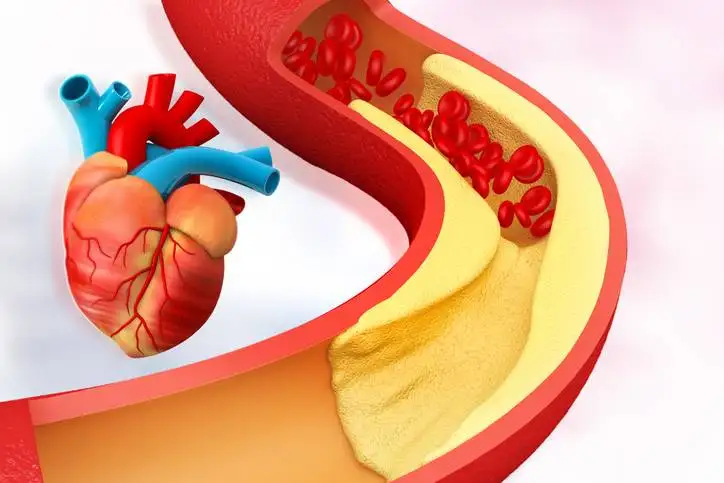Lowering cholesterol is a multifaceted endeavor that involves understanding its role in health, identifying risk factors, implementing lifestyle changes, considering dietary adjustments, exploring medical interventions, and maintaining long-term management strategies. This comprehensive guide delves into each aspect, providing a detailed exploration of how to effectively lower cholesterol levels and promote cardiovascular health.
Understanding Cholesterol
Cholesterol is a waxy substance produced by the liver and also ingested through certain foods. It plays essential roles in the body, such as building cell membranes, producing hormones like cortisol and vitamin D, and aiding in the digestion of fats. Cholesterol travels through the bloodstream in lipoproteins, primarily low-density lipoprotein (LDL) and high-density lipoprotein (HDL).
- LDL Cholesterol: Often referred to as “bad” cholesterol, LDL carries cholesterol from the liver to cells throughout the body. High levels of LDL cholesterol can lead to plaque buildup in arteries, increasing the risk of cardiovascular diseases like coronary artery disease and stroke.
- HDL Cholesterol: Known as “good” cholesterol, HDL transports cholesterol from the bloodstream to the liver, where it can be excreted or reused. Higher levels of HDL are associated with a lower risk of heart disease.
Risk Factors for High Cholesterol
Several factors can contribute to high cholesterol levels:
- Dietary Choices: Consuming foods high in saturated fats, trans fats, and cholesterol can raise LDL cholesterol levels.
- Physical Activity: Lack of regular exercise can lead to lower levels of HDL cholesterol.
- Obesity: Excess weight, particularly abdominal fat, can increase LDL cholesterol and decrease HDL cholesterol.
- Smoking: Tobacco smoke damages blood vessel walls, making them more susceptible to cholesterol buildup.
- Genetics: Family history and genetics can influence cholesterol levels and how the body processes cholesterol.
- Age and Gender: Cholesterol levels tend to rise with age and vary between men and women.
Lifestyle Changes to Lower Cholesterol
- Dietary Modifications:
- Reduce Saturated Fats: Limit intake of red meat, full-fat dairy products, and tropical oils like coconut and palm oil.
- Eliminate Trans Fats: Avoid processed and fried foods containing partially hydrogenated oils.
- Increase Soluble Fiber: Foods like oats, barley, fruits, and vegetables can help lower LDL cholesterol.
- Choose Healthy Fats: Opt for monounsaturated and polyunsaturated fats found in olive oil, avocados, nuts, and seeds.
- Include Omega-3 Fatty Acids: Found in fatty fish (e.g., salmon, mackerel) and flaxseeds, omega-3s can lower triglycerides and increase HDL cholesterol.
- Regular Physical Activity:
- Aim for at least 150 minutes of moderate-intensity aerobic activity per week, such as brisk walking, swimming, or cycling.
- Exercise can help raise HDL cholesterol levels and improve overall cardiovascular health.
- Weight Management:
- Achieve and maintain a healthy weight through a balanced diet and regular exercise.
- Losing excess weight can lower LDL cholesterol levels and increase HDL cholesterol.
- Smoking Cessation:
- Quit smoking to improve HDL cholesterol levels and reduce the risk of heart disease and stroke.
- Limit Alcohol Consumption:
- Moderate alcohol intake may increase HDL cholesterol levels, but excessive consumption can lead to high triglycerides and other health issues.
Dietary Strategies to Lower Cholesterol
- Plant-Based Diet:
- Emphasize fruits, vegetables, whole grains, and legumes, which are rich in fiber, antioxidants, and plant sterols that can help lower cholesterol levels.
- Use of Plant Sterols and Stanols:
- These compounds, found naturally in small amounts in many plant-based foods and added to some fortified products like margarine, yogurt, and orange juice, can help lower LDL cholesterol levels.
- Portion Control and Meal Planning:
- Control portion sizes to manage calorie intake and avoid overconsumption of high-fat and high-calorie foods.
- Consideration of Mediterranean Diet:
- This diet emphasizes fruits, vegetables, whole grains, fish, and healthy fats like olive oil, which can improve cholesterol levels and overall heart health.
Medications to Lower Cholesterol
While lifestyle changes are the cornerstone of cholesterol management, medications may be necessary, especially for individuals at high risk of cardiovascular disease or those who haven’t achieved target cholesterol levels through lifestyle modifications alone. The main classes of cholesterol-lowering medications include:
- Statins:
- These drugs work by blocking a substance your liver needs to make cholesterol, thereby reducing LDL cholesterol levels and lowering the risk of heart disease.
- Ezetimibe (Zetia):
- Ezetimibe works in the digestive tract to limit the absorption of cholesterol from food, helping to lower LDL cholesterol levels.
- PCSK9 Inhibitors:
- These newer medications help lower LDL cholesterol levels by blocking a protein that interferes with the liver’s ability to remove LDL cholesterol from the blood.
- Bile Acid Sequestrants:
- These medications bind to bile acids in the digestive system, preventing them from being reabsorbed into the bloodstream and thereby reducing cholesterol levels.
- Fibrates:
- Fibrates primarily lower triglyceride levels and can also increase HDL cholesterol levels, though their impact on LDL cholesterol is modest.
- Niacin (nicotinic acid):
- Niacin, a B vitamin, can lower LDL cholesterol and triglycerides while raising HDL cholesterol, though it is less commonly used due to potential side effects.
Monitoring and Management
Regular monitoring of cholesterol levels is crucial to assess the effectiveness of lifestyle changes and medications. Healthcare providers, including doctors, dietitians, and pharmacists, play key roles in developing personalized plans to manage cholesterol levels and reduce cardiovascular risk.
- Routine Blood Tests:
- Lipid panels measure total cholesterol, LDL cholesterol, HDL cholesterol, and triglyceride levels.
- Target levels for cholesterol vary depending on individual risk factors, age, and existing health conditions.
- Long-Term Management:
- Cholesterol management is a lifelong commitment requiring ongoing adherence to healthy lifestyle habits and, when necessary, medication regimens.
- Regular follow-up appointments with healthcare providers ensure cholesterol levels remain within target ranges and adjustments to treatment plans as needed.
Lifestyle Considerations and Additional Tips
- Stress Management:
- Chronic stress can contribute to unhealthy behaviors that affect cholesterol levels. Techniques such as meditation, yoga, and deep breathing exercises can help manage stress and promote overall well-being.
- Sleep Quality:
- Poor sleep patterns and sleep disorders may impact cholesterol levels. Establishing a regular sleep schedule and addressing sleep-related issues can support cardiovascular health.
- Community Support:
- Engaging with support groups or seeking guidance from healthcare professionals can provide encouragement and accountability in maintaining cholesterol-lowering strategies.
Conclusion
Lowering cholesterol levels involves a holistic approach that encompasses dietary adjustments, regular physical activity, weight management, smoking cessation, and, when indicated, medication. By understanding the role of cholesterol in health, identifying personal risk factors, and implementing tailored strategies, individuals can effectively manage cholesterol levels, reduce the risk of cardiovascular disease, and improve overall quality of life. Ongoing collaboration with healthcare providers ensures comprehensive cholesterol management and promotes long-term cardiovascular health.

